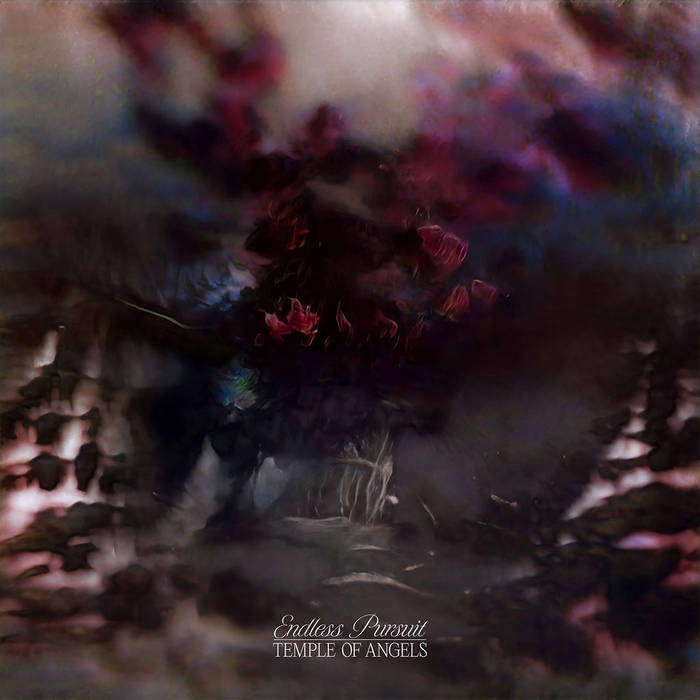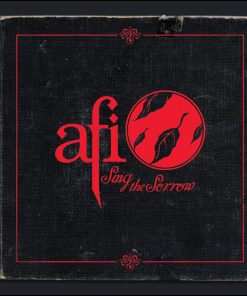Temple of Angels – Endless Pursuit LP Run for Cover Records
$ 22,98 Original price was: $ 22,98.$ 13,79Current price is: $ 13,79.
Temple of Angels’ debut full-length, Endless Pursuit, is a towering and stunning album of gothic beauty that heralds the proper arrival of one of the most dazzling bands performing right now. Shaped by the ghosts of the past and the wonder of the present, the release is dream pop at it’s most striking, using the haze and beauty of the genre not to blur songs til they are impenetrable in every sense, but rather to capture the fleeting wonder of new love and emphasize the confusion and disorientation of loss.
Formed in 2017 in Austin, Texas, Avery Burton (guitar/vocals), Patrick Todd (drums/vocals), and Cole Tucker (guitar) had all played in various hardcore and punk bands around town for years, but were keen to explore the dreamier, moodier music they enjoyed as well. After recording a few demos, they recruited Bre Morell (vocals) to be their lead singer. The new group self-releasing two EPs-2017’s Temple of Angels and 2018’s Foiled-and a single on Funeral Party Records in 2019, and were soon performing with the likes of Beach Fossils, Iceage, Narrow Head, and Turnover as well as at festivals like Levitation and Not Dead Yet. Endless Pursuit navigates between emotional highs and lows with a dreamlike complexity. The title track starts with an eerie lumber that opens the record, with shimmering, spider-like guitar lines and Morell’s hushed vocals swirling together into an echoing trance. That’s followed immediately with “Tangled In Joy”, a song that finds the band at their brightest and catchiest, an avalanche of jangling guitar chords and vocals at their sweetest, swelling and cascading over each other. It’s fitting that Endless Pursuit ends with “(For You) I’d Lose It All,” a track that’s as grandiose and gigantic as The Chameleons at their peak and possibly Temple of Angels’ most anthemic song to date. With Todd taking center stage on vocals, out pours a tale of desire so intense it consumes every part of your being, matched by a thunderous rhythm section, and amplified into the heavens by soaring keyboards in the chorus. It closes the record with an almost defiant feeling; a refusal to ignore something wonderful even if it may just end in more sorrow.
Fast Shipping and Professional Packing
We offer a broad range of shipping options due to our long-running partnerships with UPS, FedEx and DHL. Our warehouse employees will pack all goods to our exacting requirements. Your items are carefully inspected and secured properly prior to shipping. We ship to thousands of customers every day from all over the world. This demonstrates our dedication to becoming the largest online retailer in the world. Warehouses and distribution centres can be located in Europe as well as the USA.
Note: Orders that contain more than one item will be assigned a processing date depending on the item.
We will carefully examine all items before sending. Today, the majority of orders will be shipped within 48 hours. The expected delivery time will be between 3 and 7 days.
Returns
Stock is dynamic. It's not completely managed by us, since we have multiple entities, including the factory and the storage. The actual inventory can fluctuate at any time. It is possible that the stocks could be depleted after your order has been processed.
Our policy lasts 30 days. If you haven't received the product within 30 days, we're not able to issue a refund or an exchange.
To be eligible for a refund the product must be unopened and in the same state as when you received it. The item must be returned in its original packaging.
Related products
Uncategorized
Uncategorized
Uncategorized
Uncategorized
Uncategorized
Uncategorized
Uncategorized
Uncategorized
Uncategorized
Uncategorized
Uncategorized
Uncategorized
Uncategorized
Uncategorized
Uncategorized
Uncategorized
Uncategorized





































